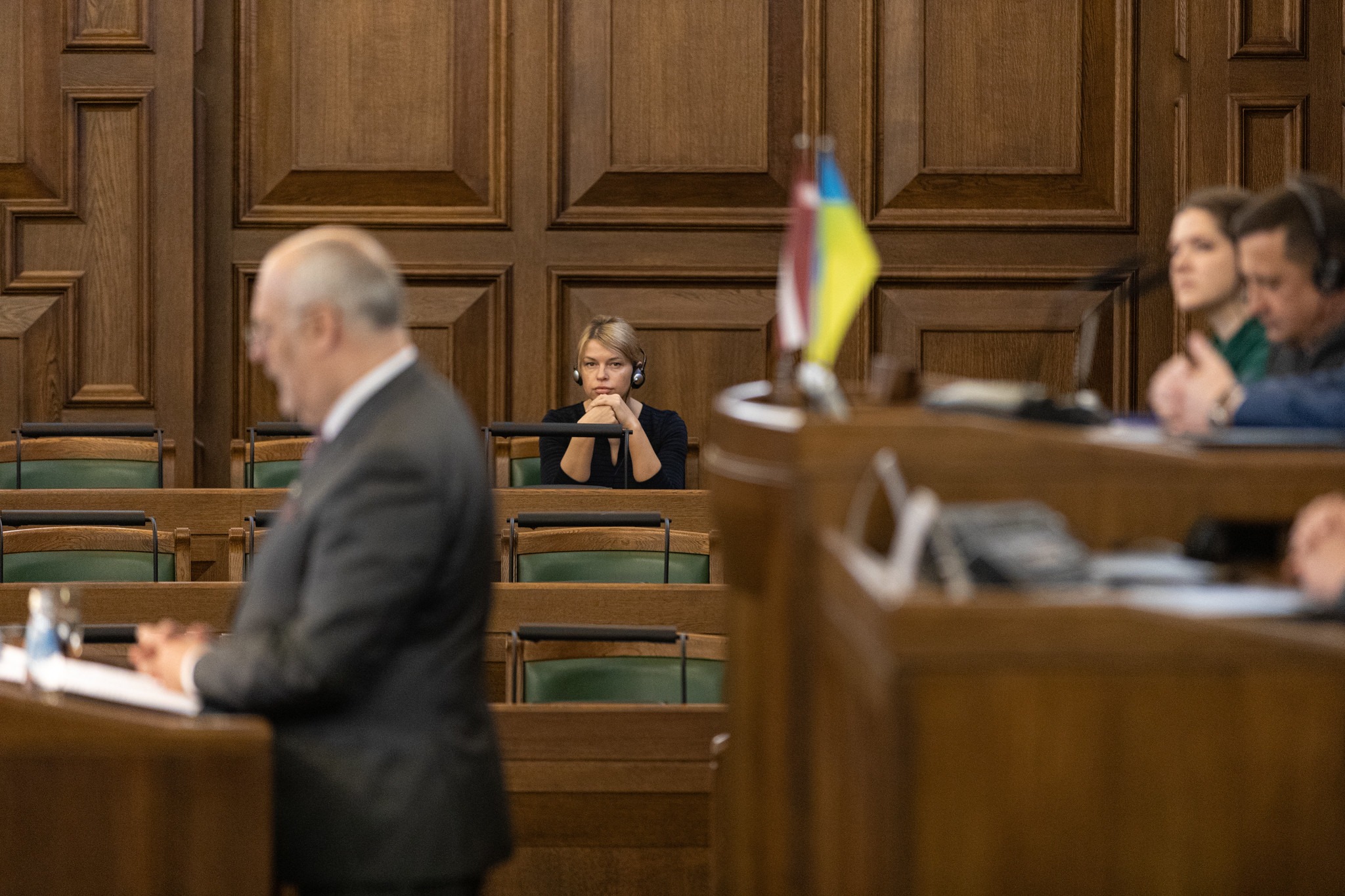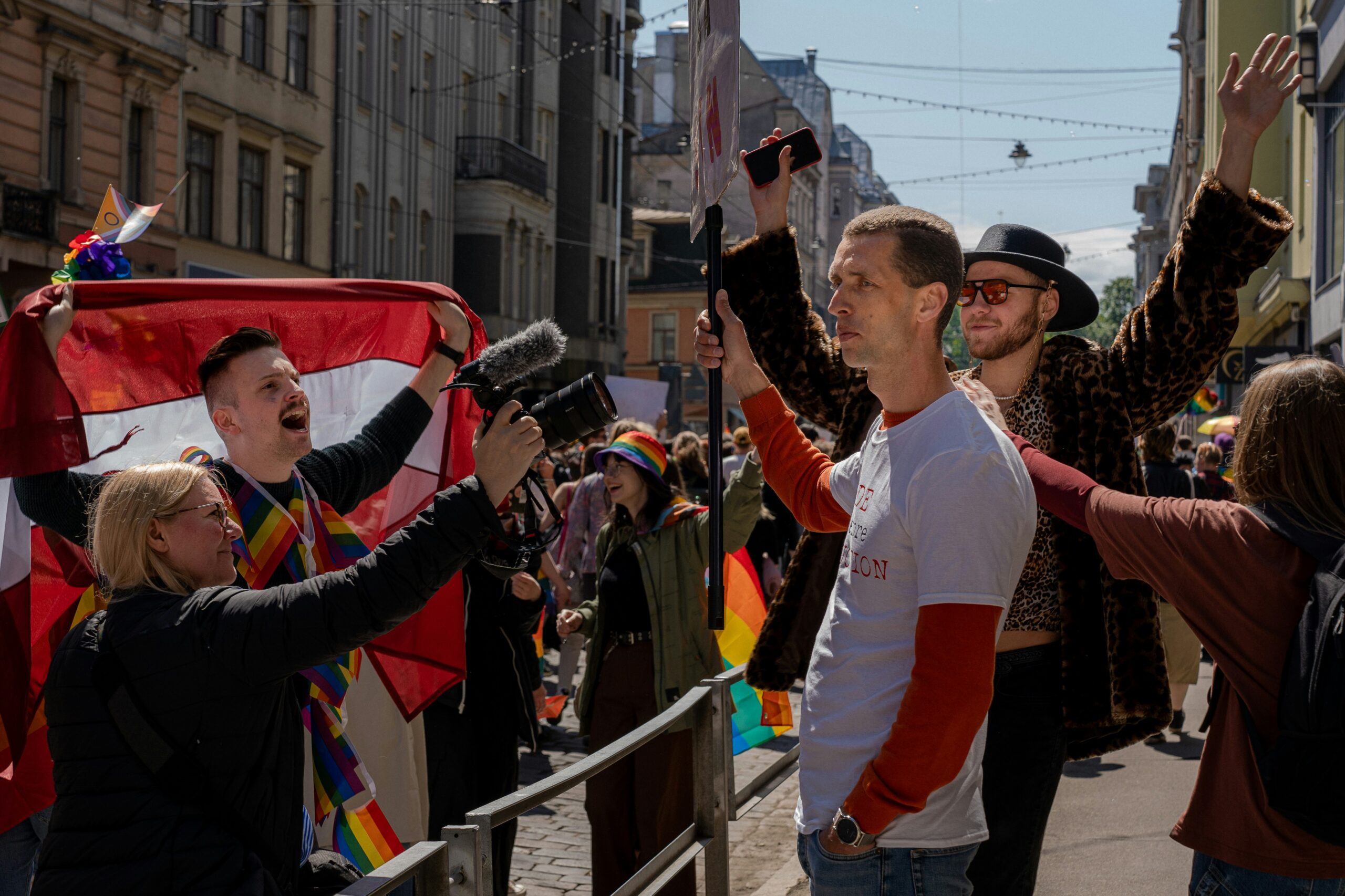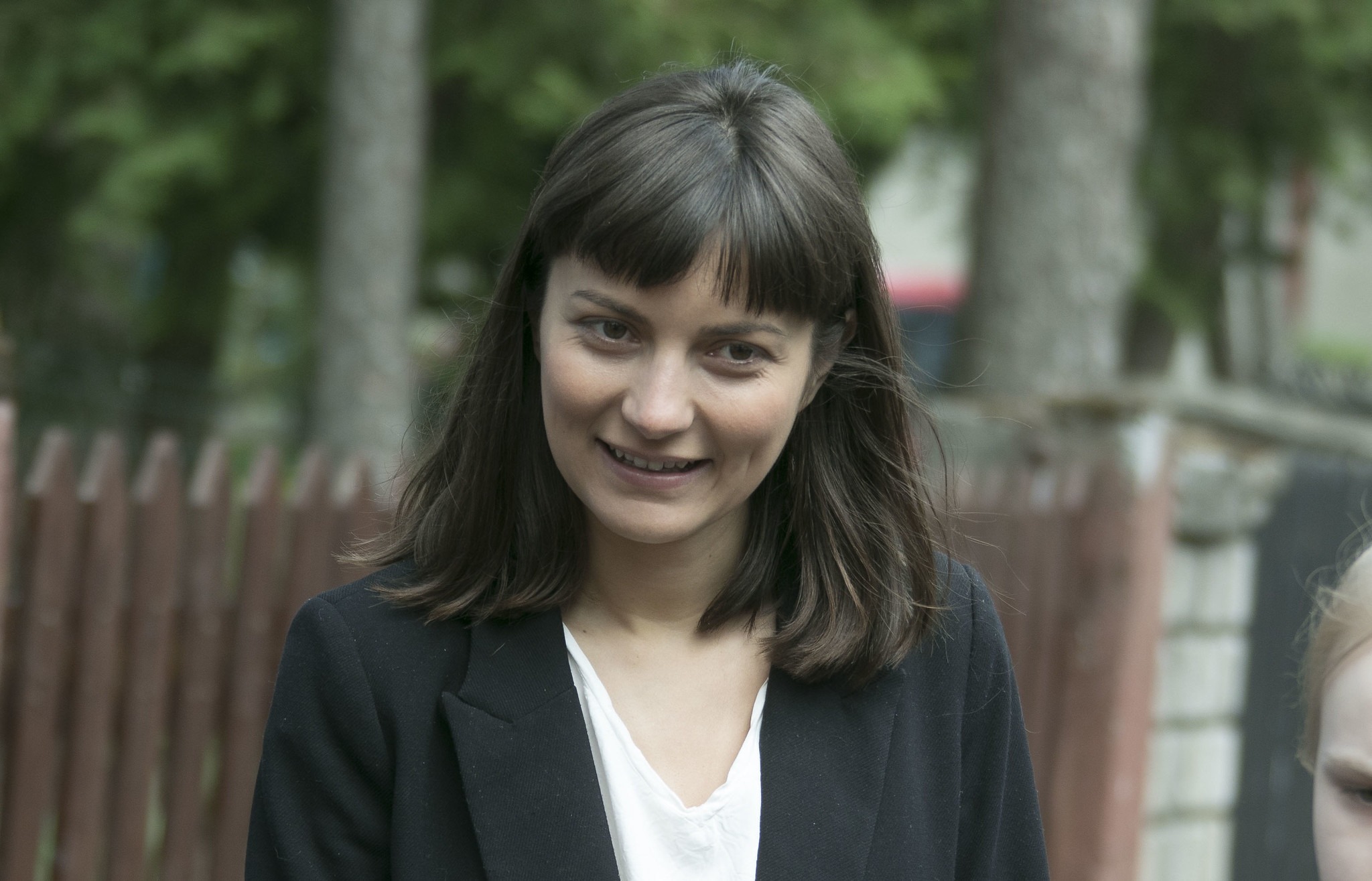
Key Insights:
The Alliance of Young Latvians, led by Glorija Grevcova and Rūdolfs Brēmanis, may have developed a social media strategy that combines multiple populist and pro-Kremlin narratives to build political support ahead of Latvia’s municipal elections. This formerly fringe political group, running in elections through the merger of “Sovereign Power” and “Alliance of Young Latvians,” is now projected to potentially cross the 5% threshold required for representation in the upcoming June Riga city council elections.
The main narratives were:
- The government does not care about you
- Latvia is Russophobic
- Latvia is a failed state
Overview of the Findings:
The Alliance of Young Latvians used multiple distinct narratives about Russian discrimination, governmental ineptitude, as well as economic decline. They exploited viral social media moments, spread anti-globalist conspiracy theories, criticized local governments, and painted a picture of a victimized Russian speaker community.
The party’s primary messaging revolves around claims of widespread “Russophobia” in Latvia, positioning themselves as legitimate representatives of the Russian-speaking population against perceived oppression. They frame government regulations around May 9th commemorations as discriminatory, portraying restrictions that prohibit the glorification of Soviet aggression and limit flower-laying ceremonies to graveyards rather than Soviet monuments as evidence of systematic persecution. Grevcova particularly leverages anonymous hateful comments calling on her not to use the “language of aggressors” and telling her to “go back to Russia” to reinforce victimization narratives, with multiple such posts reaching over 100,000 views.
Both leaders demonstrate a sophisticated understanding of social media dynamics by amplifying isolated incidents to construct broader persecution narratives. Their coordinated response to a viral judo competition video, where a woman shouted, “Wipe your tears! It doesn’t matter! He’s Russian!” to her son, exemplifies this strategy. They made multiple posts about this single incident, with Brēmanis personally attacking the woman while Grevcova investigated her political connections, treating this isolated moment as representative of systematic discrimination and achieving up to 300,000 views.
The party also promotes a narrative that essentially everything in Latvia is bad. The government does not care about people (while Grevcova and Bremanis do). The economy is doing poorly, with Latvia ranking worst in Europe across all metrics, arguing that this alleged poor performance is driving a population exodus from the country. This messaging taps into populist themes, suggesting the current government and political elite have completely failed, while simultaneously criticizing specific policies like the government’s loans as inherently harmful to the nation.
The party promotes conspiratorial frameworks, including claims about alleged demonstrations against “globalists” and vague but alarming theories regarding the World Health Organization. Brēmanis specifically suggested the WHO is engaged in unspecified nefarious activities, reflecting sovereignty-based conspiracy theories that portray international organizations as threats to national independence.
Story of the Month:
Will the Union of New Latvians get elected to the Riga city council?
The Alliance of Young Latvians, led by Glorija Grevcova and Rūdolfs Brēmanis, TikTok content combines personal drama, Russophone advocacy, and anti-establishment messaging to create emotionally engaging content that resonates with viewers feeling disconnected from mainstream politics. Their ability to outperform other populist figures in social media engagement, particularly on TikTok and Facebook, demonstrates the effectiveness of their approach in mobilizing support among Russian-speaking communities and anti-establishment voters. Compared to other populists, they appear more emotional, more outraged, and use stronger language.
As this previously marginal political group approaches the electoral threshold for formal political representation in pre-election polls, their strategic deployment of Kremlin-aligned talking points and conspiratorial frameworks represents a concerning mainstreaming of these narratives within Latvia’s political discourse. Their success illustrates how social media platforms can be leveraged to transform fringe political movements into potentially viable electoral forces through the use of emotions, resonating narratives of oppression, and government neglect.









